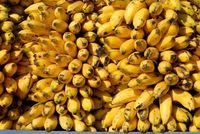Women-owned agribusinesses in South Africa are making waves in the agricultural sector, having clinched an impressive R9.42 billion in trade, investment, and partnership value during the 2025 BRICS+ Agriculture Trade and Investment Summit. This event, hosted under the auspices of the BRICS Women’s Business Alliance (WBA), showcased South Africa's commitment to inclusive economic growth and highlighted the significant role women play in driving agricultural innovation.
The Summit, held at the Durban ICC, not only emphasized the importance of women in leadership roles within agriculture but also served as a platform for high-value agreements that resonate with national priorities. Despite facing budget and infrastructure challenges, the outcomes of the Summit were substantial, demonstrating South Africa’s leadership in fostering trade relationships that empower women.
A standout achievement was the signing of an R8.57 billion sugar export agreement with Brazil’s JPF Participações LTDA. This deal is set to bolster South Africa's sugar industry significantly. Additionally, plans for a R471 million sugar manufacturing plant in KwaZulu-Natal, utilizing Brazil’s agro-industrial model, are underway, promising to create jobs and stimulate local economies.
Other noteworthy agreements included R207 million earmarked for poultry production investments, linking Zimbabwe’s Jovatech with US-based Casnet Commerce, and over R94 million allocated for essential infrastructure projects such as fertilizer manufacturing, solar energy initiatives, and boreholes across South Africa.
The Summit also provided a stage for smaller but equally promising investments through live business pitches, with various women-led enterprises securing significant funding. For instance, GentiShe, which produces biodegradable sanitary pads, secured R20 million, while Ses’fikile Wines, a black-woman-owned brand, also received R20 million. Other ventures, like Avo EcoPower, which focuses on avocado by-product innovation, and SACG, a premium Arabica coffee producer, secured R19 million and R40 million, respectively. Even rural healthcare initiatives, such as FamMed Clinics, received R120,000 in mentorship value.
In a move towards technological advancement, the Summit saw the launch of the Technovate Platform, an AI- and IoT-enabled agri-trade platform designed to enhance training, facilitate remote connections, and verify live trade engagements. This innovative platform aims to connect local farmers with global markets, marking a significant step in the digitization of agriculture.
Furthermore, the BRICS+ platform committed over R3.1 million to mentorship and skills development, emphasizing the importance of global exchange. Five women-owned enterprises were selected for a fully funded business immersion program in India, receiving mentorship from experts across various countries, including Brazil, the USA, Zimbabwe, and South Africa.
These agreements and initiatives underscore the potential of global partnerships founded on shared development goals, unlocking opportunities for South African companies to export, expand, and lead. They also reflect the core values of South Africa’s G20 leadership, emphasizing inclusive economic engagement and the vital role of Africa in international trade.
As the world watches, South Africa is positioning itself as a leader in how business is conducted, particularly through empowering women and fostering sustainable partnerships. For those looking to stay updated on the BRICS Women’s Business Alliance, more information can be found at www.bricswomen.com.
In a different realm of trade dynamics, Tanzania has issued a warning regarding agricultural imports from South Africa and Malawi. Agriculture Minister Hussein Bashe announced that if Pretoria and Lilongwe do not lift their restrictions on Tanzanian shipments by April 23, 2025, Tanzania will impose trade barriers on all agricultural imports from these countries.
Currently, South Africa has restricted banana imports from Tanzania, while Malawi has blocked various products, including flour, rice, ginger, and corn. Bashe stated that agricultural goods from South Africa and Malawi would not be permitted to transit through Tanzania or its ports, further complicating trade relations in the region.
Additionally, Tanzania plans to block shipments of fertilizer to Malawi, which could exacerbate food security issues in the country. This situation underscores the delicate balance of trade relationships in the region and the potential impact of protectionist measures on agricultural sectors.
As South Africa continues to forge ahead with its inclusive growth agenda, the contrasting developments in Tanzania highlight the complexities of regional trade dynamics. With the BRICS+ Summit showcasing the potential of women-led enterprises and Tanzania's trade threats hanging in the balance, the next steps in these agricultural negotiations will be crucial for the future of trade in Southern Africa.





